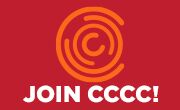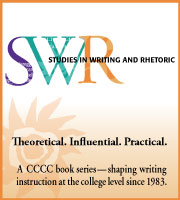Application Deadline: October 10
Purpose: As a scholar whose writings have had a profound impact on the studies of both rhetoric and queer theory, Gloria Anzaldúa’s work continues to encourage us to forge connections across difference and oppression in order to dismantle systems of privilege, whether that be heterosexism, heteronormativity, racism, sexism, or ableism (as a non-exhaustive list). In Borderlands/La Frontera: The New Mestiza, Anzaldúa shows us that the act of composition cannot be divorced from our identities:
Looking inside myself and my experience, looking at my conflicts, engenders anxiety in me. Being a writer feels very much like being a Chicana, or being queer – a lot of squirming, coming up against all sorts of walls….. That’s what writing is for me, an endless cycle of making it worse, making it better, but always making meaning out of the experience, whatever it may be. (94-95)
In the legacy of her work as a writer, Anzaldúa reminds us that we have a duty to strike out oppression, build alliances, and fundamentally transform cultures. She underscores that we may achieve these goals through the act of writing.
In this spirit, the Conference on College Composition and Communication (CCCC) sponsors the Gloria Anzaldúa Rhetorician Award to support scholars whose work participates in the making of meaning out of sexual and gender minority experiences.
Eligibility: Applicants must be accepted to the CCCC Annual Convention program and should currently be enrolled in graduate school or be first time presenters at the Convention.
Award Criteria: All candidates should show potential as scholars of rhetoric and composition. We encourage sexual and gender minority applicants, who may (or may not) identify as lesbian, gay, bisexual, transgender, queer, two-spirit, questioning, intersex, asexual, ally, or pansexual (LGBTQ2QIAAP), though applicants who do not see themselves reflected in these categories are also encouraged to apply.
The work of a successful candidate should fulfill some of the following criteria:
- Interrogate the intersections between composition/rhetoric research and queer theory.
- Contribute to the discourses between sexuality/gender identification and writing research, pedagogy, and/or theory.
- Address issues of social justice, writing, and sexual/gender identification.
- Forge new conversations in composition/rhetoric and queer meaning-making.
Award Specifics: Recipients of the Gloria Anzaldúa Graduate Rhetorician Travel Award, up to three, will receive $750 for travel-related expenses to present their work at the CCCC Convention. To honor the recipients, CCCC will also host a reception during the CCCC Annual Convention. The Awards Selection Committee will choose up to three winners based on the following criteria: originality of research; critical engagement with and contribution to current scholarship in queer studies and rhetoric/composition; and potential for lasting projects. Applications must be submitted by October 10, 2024, as a single PDF attachment to cccc@ncte.org. Winners will be notified in December.
To apply, interested graduate scholars or first time presenters accepted to the CCCC Annual Convention program must submit the following documents in a single PDF attachment in the order indicated below:
- A copy of their accepted proposal (NOT the acceptance letter).
- An expanded 3-5 page abstract.
- A brief one-page statement of interest identifying the applicant’s research interests, articulating plans for a career in rhetoric and composition, and including a statement of eligibility for the award.
Other Considerations: In the event that the CCCC Annual Convention moves to an online-only event with no in-person component, recipients will receive a complimentary registration for the convention in lieu of any travel funds.
Gloria Anzaldúa Rhetorician Award Winners
2024

Erin Green, University of Maryland College Park
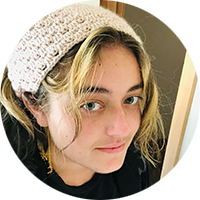
Jay Lowrey, Whatcom Community College
2023
Monét Cooper, University of Michigan
Ruben Ruby Mendoza, Michigan State University
2022
Lea Colchado, University of Houston, TX
Cody Januszko, Carnegie Mellon University, Pittsburgh, PA
Olivia Wood, CUNY Graduate Center, NY
2021
Michelle Flahive, Texas Tech University
Anna Zeemont, City University of New York
2020
Samuel Brook Corfman, University of Pittsburgh, PA
Elise Dixon, Michigan State University, East Lansing
B. López, Syracuse University, NY
2019
Wilfredo Flores, Michigan State University, East Lansing
Alejandra I. Ramirez, University of Arizona, Tucson
Marlene Galvan, University of Texas Rio Grande Valley
2018
Joshua Barsczewski, University of Massachusetts Amherst
Zarah C. Moeggenberg, Washington State University, Pullman
James Swider, Indiana University of Pennsylvania
2017
Gavin P. Johnson, The Ohio State University, Columbus
Leida K Mae, Oregon State University, Corvallis
Laura Tetreault, University of Louisville, KY
2016
Rachel Lewis, Northeastern University
Casey Miles, Michigan State University
Erika M. Sparby, Northern Illinois University
2015
Alexandra J. Cavallaro, University of Illinois, Urbana-Champaign
Maria Novotny, Michigan State University, East Lansing
Jon M. Wargo, Michigan State University, East Lansing
2014
Kendall Gerdes, The University of Texas at Austin
Jessica Mason McFadden, Western Illinois University, Macomb
Neil Simpkins, University of Wisconsin-Madison
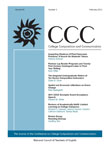 College Composition and Communication is published exclusively for professors of college composition at two- and four-year institutions.
College Composition and Communication is published exclusively for professors of college composition at two- and four-year institutions.![]() Questions?
Questions?




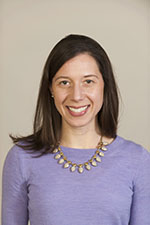 Heather Lindenman is assistant professor of English at Elon University, where she teaches courses in first-year writing and community writing. Her research, which has appeared in Composition Forum and is forthcoming in Reflections, focuses on ways that students connect their academic and non-academic writing experiences and on the consequences of community-engaged writing partnerships.
Heather Lindenman is assistant professor of English at Elon University, where she teaches courses in first-year writing and community writing. Her research, which has appeared in Composition Forum and is forthcoming in Reflections, focuses on ways that students connect their academic and non-academic writing experiences and on the consequences of community-engaged writing partnerships.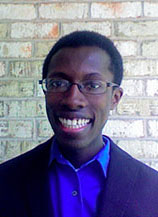 Martin Camper is assistant professor of writing at Loyola University Maryland, where he teaches courses in rhetoric, writing, argumentation, and style. He is the author of Arguing over Texts: The Rhetoric of Interpretation (2018) and is working on a second book tentatively titled How the Bible’s Meaning Changes: Argument and Controversy in the Christian Church.
Martin Camper is assistant professor of writing at Loyola University Maryland, where he teaches courses in rhetoric, writing, argumentation, and style. He is the author of Arguing over Texts: The Rhetoric of Interpretation (2018) and is working on a second book tentatively titled How the Bible’s Meaning Changes: Argument and Controversy in the Christian Church.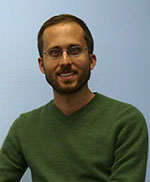 Todd Ruecker is an associate professor at the University of New Mexico. His work focuses on investigating the increasing linguistic and cultural diversity of education worldwide and ways to transform education systems and institutions. He has published four books as well as articles in venues such as TESOL Quarterly and Writing Program Administration.
Todd Ruecker is an associate professor at the University of New Mexico. His work focuses on investigating the increasing linguistic and cultural diversity of education worldwide and ways to transform education systems and institutions. He has published four books as well as articles in venues such as TESOL Quarterly and Writing Program Administration.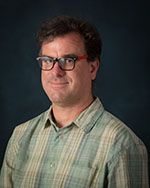 Stefan Frazier is an associate professor in the Department of Linguistics and Language Development at San Jose State University. His research interests include composition pedagogy (first and second language), functional grammar, and the pedagogy of pragmatic competence. He is also active in university governance at the local and state levels.
Stefan Frazier is an associate professor in the Department of Linguistics and Language Development at San Jose State University. His research interests include composition pedagogy (first and second language), functional grammar, and the pedagogy of pragmatic competence. He is also active in university governance at the local and state levels.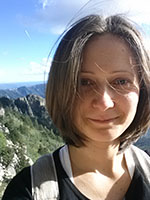 Mariya Tseptsura is a PhD candidate at the University of New Mexico. Her research focuses on second language writing, WPA, and online instruction.
Mariya Tseptsura is a PhD candidate at the University of New Mexico. Her research focuses on second language writing, WPA, and online instruction.


